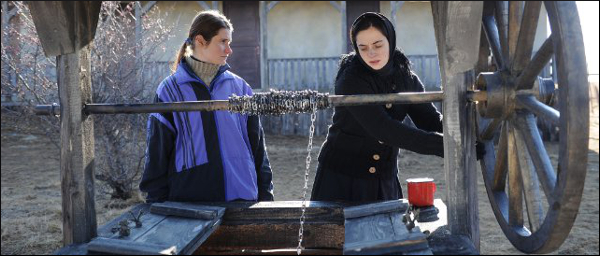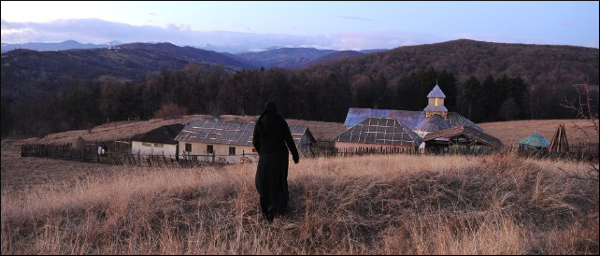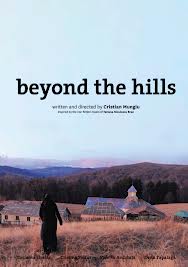Released in 2012, Dupa dealuri (Beyond the Hills) is a haunting, thought-provoking movie directed by Cristian Mungiu. Awarded for best screenplay and best female leads at the 2012 Cannes Film Festival, it is based on the true story of an exorcism carried out in 2005, which culminated in the tragic death of Maria Cornici, a nun at a Moldavian monastery.

In the film, two young women, Voichita and Alina, both orphans, become romantically involved. Yet, at the age of 18, they are separated and each goes her own way in hopes of finding a better future. Alina flees to Germany, looking for work butends up in foster care while Voichita begins a new life in a rural convent. A few years later, a damaged Alina pays Voichita a visit, but is taken aback by the latter’s life at the monastery and her total conversion, since she no longer wants to get physical with Alina. Initially, Alina wants to get Voichita out of the convent and over to Germany, but Voichita will not listen reasoning: “Oamenii vin si se duc, numai Dumnezeu e cu tine tot timpul” (People come and go; only God is always with you).
Voichita pleads with her friend to stay at the monastery and expiate her sins, leading Alina into tantrums that eventually turn violent towards the priests and nuns. However, Alina is unable to receive clear diagnosis from doctors, only receiving one doctor’s condolences for her condition: “Bolile astea nenorocite, nu teomoara, darnici nu telas sa traiesti” (These blasted illnesses, they don’t kill you, but they don’t let you live).
"Dupa dealuri is an X-ray of monastery life, delving deepinto a world fraught with superstition and age-old attitudes."
A short while thereafter, Alina returns to the convent and the priest reluctantly allows her to stay. She tries to become a nun, but her condition becomes worse, and the nuns finally reach the conclusion that she is possessed. An exorcism is arranged. They carry Alina on a makeshift cross through the snow, while the priest reads prayers and sprinkles holy water on her to get rid of the malefic spirit that allegedly took over her soul and body. The brutality of the exorcism claiming Alina’s life shocks Voichita, and forces her to reconsider former beliefs and guidelines.
Dupa dealuri is an X-ray of monastery life, delving deep into a world fraught with superstition and age-old attitudes. The tone of the movie, however, is not derisive towards the Church. Everyone is guilty of Alina’s death, from the devout priest to the incompetent doctor who fails to spot her mental illness –even Voichita appears guilty. The sweet Moldavian dialect spoken by the nuns and the picturesque, idyllic scenery surrounding the monastery balance the grim subject matter.





